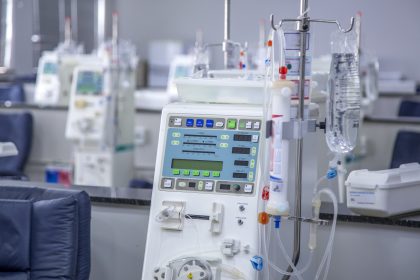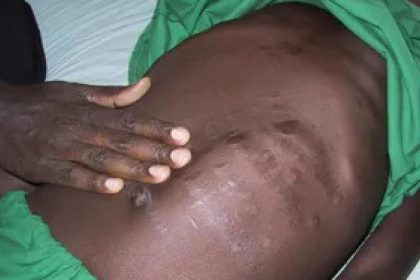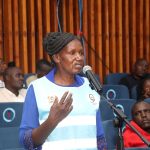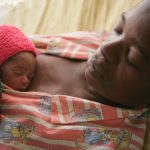The local health facilities at the devolved units in Northern Kenya, for instance, have no existing cancer registry that could inform plans and strategic direction…while poorly remunerated researchers in the country engage in side hustles to make ends meet.
Health research is the careful study of everything that affects our well-being. It helps us understand how to stay healthy, prevent illness, improve treatments, and discover better ways to care for people. Science opens doors to new solutions and a healthier future.
Health research in Kenya and other developing countries is crucial for understanding and addressing the unique challenges and disparities faced by these nations. Several studies have examined various aspects of health research in these countries, including the relationship between health and inequality, and regional disparities in health indicators, with minimal success.
Poverty in developing countries is widening, and inequity prevails. New illnesses, especially cancers, have burdened and strained health systems. In response to growing global health threats (including climate change, AIDS, tuberculosis, malaria, and epidemics of new strains of viruses) and the transfer of health risks, developing countries and international donors need to invest in health research capacity building.
Kenya can learn from developed nations like Brazil and India, which have invested in local research infrastructure to address the emerging health issues. Likewise, Thailand has integrated research into the existing public health policies to guide effective health responses and actions.
Researchers in the developing countries are poorly remunerated considering researchers in the African continent earn an average remuneration of $6,000 – $12, 000 (Ksh770, 000- Ksh1.5 million) compared to their counterparts in Europe with average annual salary of $45,000-$70,000 (Ksh6 million – Ksh9 million), according to the African Academy of Sciences data for 2021. Many must work privately to make ends meet. Schemes to promote research as a viable career option by giving research awards and supplementing researchers with compensation have been tried but not yet evaluated.
We can learn from the USA, some countries, and Europe, which have strategies to incentivise research careers. The European Research Council, for instance, has spent over €2 billion (Ksh295 billion) in 2023 on research grants for senior and early research careers, according to a 2021 report by the African Academy of Science. Likewise, in India same report informs us that a good authority has a program dubbed INSPIRE has supported about 100,000 young researchers in a decade with fellowship and other research-related awards. This scheme includes monetary incentives, compensation, recognition and career development and pathways for the researchers.
Researchers often transition from other fields of expertise to the field of interest through various pathways. This may include academia, like master’s or doctoral programs, in which individuals propel their research based on previous experience.
Likewise, fellowship programs are common in European countries and often support professionals and targeted cohorts like women. However, researchers may transition through collaborative efforts and partnerships between institutions like drug companies and industries, universities and reference laboratories, etc.
In Kenya, little support and attention are given to health research, and the allocation of the two per cent of GDP (about Ksh278 billion) that is set aside for funding research institutions has not been actualised. Just think about it: only about Ksh6.5 billion from the National Treasury and donors have been allocated so far, according to the National Research Fund (NRF) Strategic Plan for 2023-2027.
Greater support for research for development needs to be adopted as a core value to address the weak research capacity. Currently, a huge chunk of research support in the form of conditional Grants is provided by bilateral donors like the Bill & Melinda Gates Foundation and international organisations, including the Global Fund and the Foreign, Commonwealth and Development Office (FCDO). Their support is pegged on targeted research thematic areas like HIV/AIDS, TB and Malaria as these diseases caused significant global suffering in the developing countries.
The Kenyan government complements a paltry portion of Ksh5 billion from the Exchequer towards the National Research Fund, leaving a Ksh290 billion gap from the aforementioned two per cent of GDP.
The Northern frontier Counties, including Isiolo, Marsabit, Garissa, Wajir and Mandera, are on track despite the weak health systems and have significantly excelled in the areas of curative and preventive health services compared to the pre-devolution period. Most had no specialist doctors, few medical officers, clinical officers, few nurses and other health cadres in the pre-devolution era, to a significant number of various specialised doctors and a significant number of various health cadres like Operationalised Primary Health Care facilities and equipped County and sub-county hospitals.
This can be established with the reduced disease outbreaks pattern of cholera and measles, and increased demand for services: think skilled deliveries and immunisation services at the public health facilities.
However, these countries have given little attention towards health research and are facing challenges, especially the emerging suspected cases of cancers of the oesophagus, prostate (men), and kidney failures for all gender and age groups, according to the Non-Communicable Disease Clinic Register.
Hypothetically, these suspected cases can be associated with environmental and lifestyle-related factors that need to be investigated through health research of a bigger magnitude involving national and regional research institutions. The local health facilities have no existing cancer registry that could inform plans and strategic direction at the devolved units. Due to capacity issues, the majority of the suspected cases are referred to designated health institutions and specialists for diagnosis and further management, while others seek spiritual healing at home for nature to take its course.
This scourge has been emotionally and economically draining to both the suspect patients and their family members. Studies done, like the 2019 African Population and Health Research Centre (APHRC) on Readiness of Health Facilities in Kenya from selected counties, established that the primary health facilities are ill-equipped and the service providers have capacity challenges towards diagnosis and management of non-communicable diseases. If this is not addressed, then the Country will contribute minimally towards the Sustainable Development Goals by 2030.
The following approach could help in strengthening health research in Frontier Counties and reduce the risk of emerging diseases:
- Establish basic research units in frontier counties with trained personnel to better understand diseases and how they spread.
- Build capacity by training health workers, improving infrastructure, and partnering with national and regional research institutions. This boosts health outcomes, reduces poverty, and strengthens pandemic preparedness.
- Analyse disease burden and causes to help set clear health priorities.
- At the national level, ensure political support, clear priorities, proper funding, quality control, and effective sharing and use of research findings.
- Empower northern counties to take part in setting research priorities and regulations. A regional health research centre can help tackle shared challenges and conduct clinical trials, including cancer studies.
- Host a regional health conference focused on rising non-communicable diseases (like cancer), bringing together politicians, professionals, NGOs, and both public and private sectors.
- Encourage collaboration between national and local stakeholders at every stage of health research, from planning to implementation.
The writer is a Health researcher and PhD Candidate, Kenya Methodist University.
























